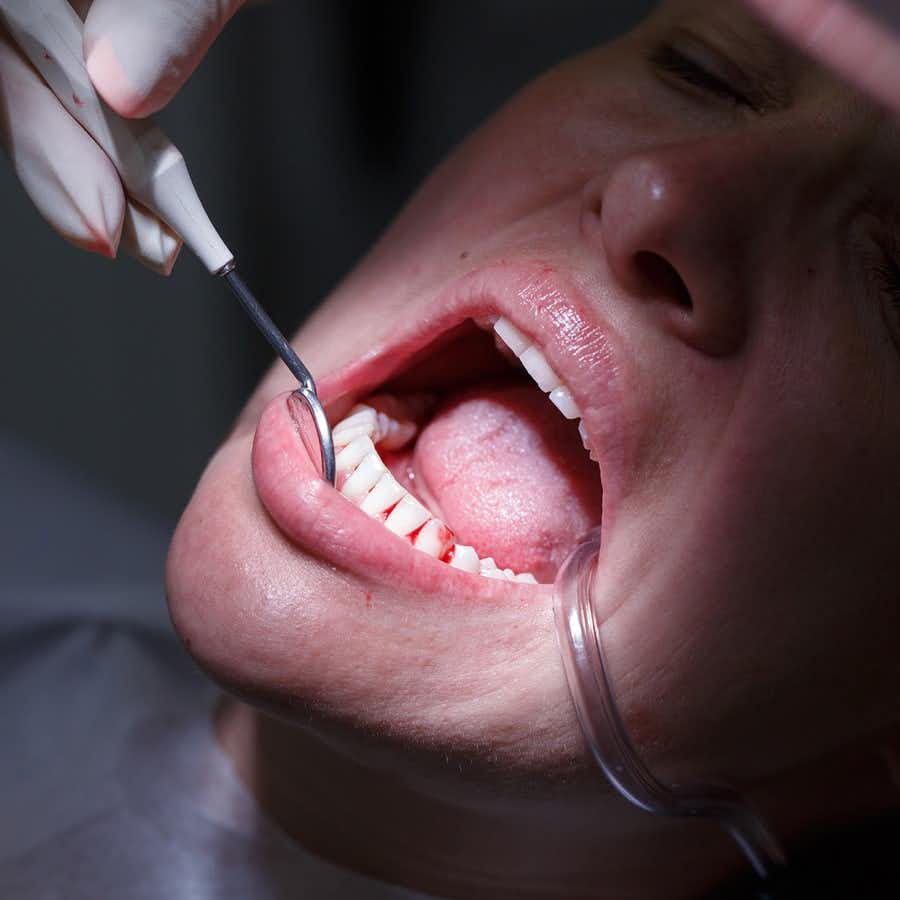
If you are trying to reduce your chance of developing Alzheimer disease, you might want to schedule an appointment with your dentist. New research suggests that gum disease should join the list of factors that may increase your chance of developing Alzheimer disease.
What Is the Link Between Gum Disease and Alzheimer Disease?
The scientists compared brain samples from autopsies of people with Alzheimer disease and people of similar ages without the brain condition (Presentation at annual Experimental Biology Meeting, 4/7/19). They found distinctive DNA indicating the presence of Porphyromonas gingivalis, the bacteria responsible for periodontitis, more frequently in the Alzheimer-affected brains. P. gingivalis produces bacterial toxins known as gingipains that were also present in these brains.
Following Up on P. Gingivalis and the Brain:
The investigators then conducted experiments in mice. These indicated that P. gingivalis moves readily from the mouth to the brain. However, it can be stopped if the gingipains are blocked. One drug company is already testing a gingipain-blocking drug with hopes that it will prove helpful against Alzheimer disease.
Medical Consensus Advisory
Most of the research on Alzheimer disease has focused on the accumulation of the plaques made up of beta-amyloid proteins and the tangles of tau proteins. When these build up in the brain, they are believed to damage the nerve cells and disrupt neuron connections essential for thought and memory. Some people carry a specific variation of a gene–Apoe-E4–that may increase their risk for developing such plaques and tangles.
Other Chronic Conditions Linked to Periodontal Disease:
Alzheimer disease is not the only serious problem that has been linked to periodontal infection. Gum disease has previously been associated with type 2 diabetes, osteoporosis, rheumatoid arthritis and a number of cardiovascular complications. Researchers have even found links with some types of cancer. In addition, people with poor oral health appear to have a harder time controlling their high blood pressure (Hypertension, Oct. 22, 2018). The investigators reviewed data from the US National Health and Examination Survey (NHANES). In the process, they found that about half of the participants had gum disease. The worse the periodontal disease, the harder it was to manage high blood pressure.
Medical Consensus Advisory
While beta-amyloid has been treated as the prime culprit behind Alzheimer disease, some scientists hypothesize that it may be part of the brain's attempt to protect itself from infection. For more, listen to Show 1132: Are Infections to Blame for Alzheimer Disease? or Show 1159: Do Cold Sores Boost Your Risk for Dementia?
Among people taking blood pressure medicine, gum disease raised the systolic measurement by 2 to 3 mm Hg. (Millimeters of mercury are the standard measure of blood pressure.) In addition, treatment of periodontal disease reduced the likelihood of antihypertensive treatment failure.
Don’t Count on Mouthwash Against Gum Disease:
Periodontal therapy may have to go beyond swishing and rinsing. Back in 2010, the FDA warned mouthwash manufacturers not to claim that their products could prevent or treat gum disease. The makers of Listerine Total Care Anticavity Mouthwash, CVS Complete Care Anticavity Mouthwash and Walgreen Mouth Rinse Full Action were chastised for advertising that their products can remove plaque or prevent periodontal disease. In summary, the FDA says that consumers can use these products to reduce the likelihood of developing cavities, but there is no reliable data to suggest that they will protect gums.
What Can You to Keep Your Mouth Healthy?
The basics for preventing gum disease are simple: brush and floss at least twice a day. In addition, see a dental hygienist for a thorough cleaning at least twice a year. Beyond that, your dentist (or periodontist, if you have one) will recommend tools such as soft bristle picks or water picks to use between the teeth. Providing the gums with gentle stimulation may improve circulation and help them fight off infection. Sometimes periodontal infections require antibiotic treatment. On the other hand, conscientious oral hygiene can go a long way toward keeping gums healthy.


